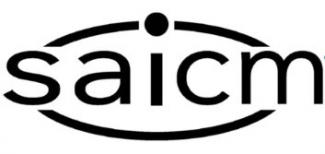About
At the end of a long week of negotiations, delegates adopted the Global Framework on Chemicals – For a planet free of harm from chemicals and waste, along with 12 resolutions and a High-level Declaration to ensure chemicals are managed so that human health and the environment are protected from their dangers.
Final report
Summary report 23–29 September 2023
All coverage
Modern society’s reliance on chemicals makes chemicals production one of the major and most globalized sectors of the global economy. However, the essential economic role of chemicals and their contribution to improved living standards needs to be balanced with recognition of potential costs: heavy use of water and energy in their manufacture and the potential adverse impacts of chemicals on the environment and human health. The diversity and potential severity of such impacts make sound chemicals management a key cross-cutting issue for sustainable development.
To address this challenge, in 2006 the United Nations Environment Programme (UNEP) launched the Strategic Approach to International Chemicals Management (SAICM), a multi-stakeholder policy framework to promote sound chemicals management around the world. SAICM was conceived as the core international forum for achieving a key goal set in 2002 at the World Summit on Sustainable Development: by 2020, chemicals would be used and produced in ways that lead to the minimization of significant adverse effects on human health and the environment.
With the 2020 deadline in mind, the fourth session of the International Conference on Chemicals Management (ICCM), held in September 2015, initiated an intersessional process (IP) to prepare recommendations on the future of SAICM and the sound management of chemicals and waste beyond 2020, for consideration by the fifth session of the ICCM, originally slated for October 2020. The COVID-19 pandemic forced a postponement of both the IP and ICCM5, although preparatory work continued in “virtual working groups.”
The fourth meeting of the IP, held in Bucharest, Romania from 29 August- 2 September 2022 and continuing in Nairobi, Kenya from 27 February – 3 March 2023, produced a Co-Chairs’ “single consolidated document” containing recommendations to ICCM5. But the document contained a lot of bracketed text, indicating areas where consensus has not yet been reached. The resumed meeting of IP4 (IP4.3) met in Bonn, Germany, from 23-24 September 2023, to work through this consolidated document with a view to forwarding clear recommendations to ICCM5.
ICCM5 convened from 25-29 September 2023 in Bonn. The main task of the Conference was to adopt a “beyond 2020” chemicals and waste global policy framework instrument based on the IP’s recommendations. The Conference was also expected to:
- adopt resolutions required for the implementation of the new framework instrument, including with regard to any intersessional work that may be needed;
- endorse the outcomes of ICCM5's high-level segment, scheduled for 28-29 September, including the adoption of a high-level declaration; and
- agree on collaborative actions and commitments for the new instrument and endorse stakeholder implementation announcements and commitments.
The Earth Negotiations Bulletin (ENB) writers for this meeting were Keith Ripley; Wangu Mwangi; Jose F. Pinto-Bazurco, Ph.D.; and Hillary Rosentreter. The Digital Editor was Mike Muzurakis. The Editor was Pam Chasek, Ph.D.
View past and future events
To receive free coverage of global environmental events delivered to your inbox, subscribe to the ENB Update newsletter.

